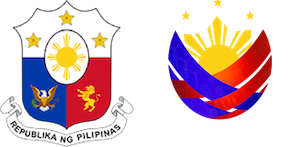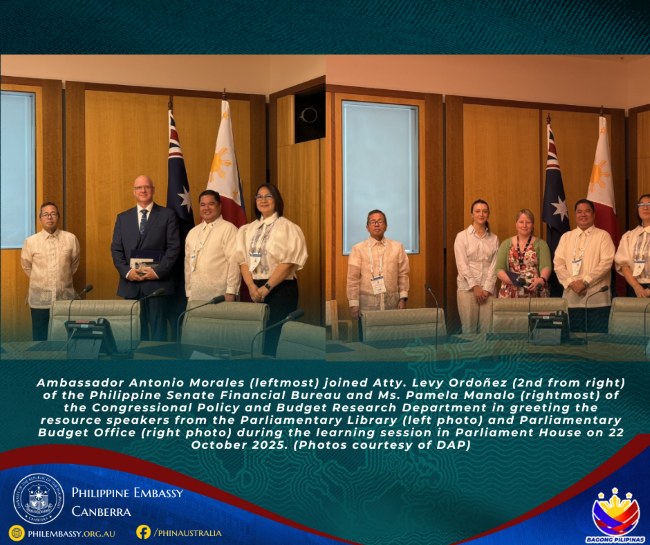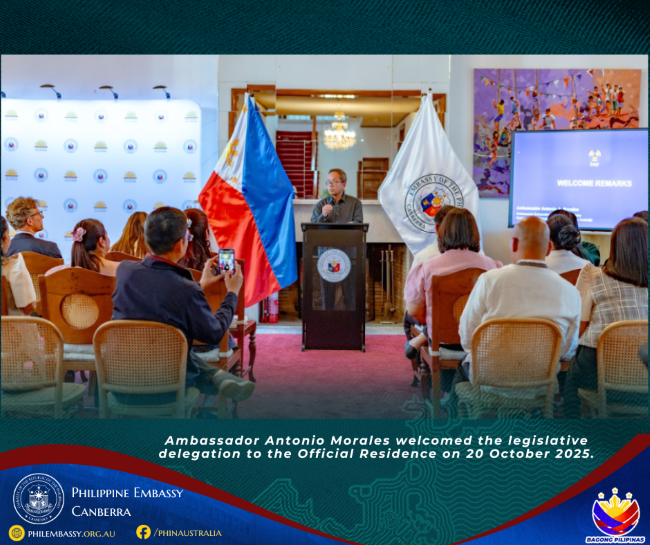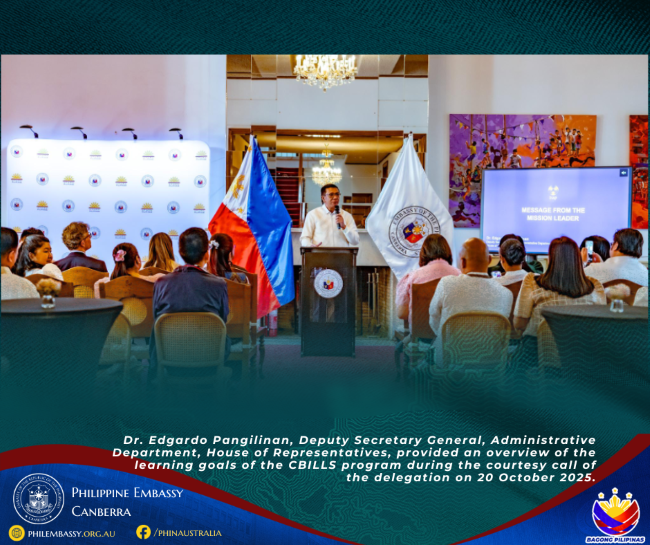
PRESS RELEASE
Philippine Embassy, Canberra
1 Moonah Place, Yarralumla, ACT 2600
www.philembassy.org.au *Tel. No. 02-6273-2535*

24 October 2025, CANBERRA – The Philippine Embassy in Australia actively supported the visit of Philippine Senate and House of Representatives officials to Canberra from 18 to 25 October 2025, as part of the 2025 Senior Leaders Track Capacity Building on Innovative Leadership for Legislative Staff (CBILLS) Program of the Development Academy of the Philippines (DAP).
The delegation was led by Dr. Edgardo Pangilinan, Deputy Secretary General, Administrative Department, House of Representatives, and included representatives from the offices of Senators Joel Villanueva and Robinhood Padilla, as well as key legislative service departments.
During the delegations’ courtesy call on 20 October 2025, Philippine Ambassador to Australia H.E. Antonio Morales underscored the shared democratic values between the Philippines and Australia, including a strong commitment to equality, fairness, public trust, and anti-corruption. The Embassy also briefed the delegation on the Strategic Partnership between the Philippines and Australia, highlighting cooperation in defense and security, trade and investment, socio-cultural engagement and the upcoming celebration of 80 years of diplomatic relations in 2026. Ambassador Morales also joined the delegation’s learning sessions at Parliament House.
The CBILLS Program 2025 Senior Leaders’ Track, delivered in partnership with the Australian National University Crawford School of Public Policy, seeks to strengthen the leadership, technical, and strategic skills of senior and emerging legislative leaders, particularly in evidence-based policymaking.
During their visit, the legislative staff engaged Federal Member for Bean and Government Whip in the House of Representatives David Smith MP, Spouse of Trade and Tourism Minister and legislative staffer Mrs. Nimfa Farrell, officials from the Treasury, Department of Foreign Affairs and Trade, Department of Social Services, Department of Infrastructure, Digital Transformation Agency, the Parliamentary Liaison Office, Parliamentary Library, Parliamentary Budget Office, and academics from the ANU and the University of New South Wales. - END



